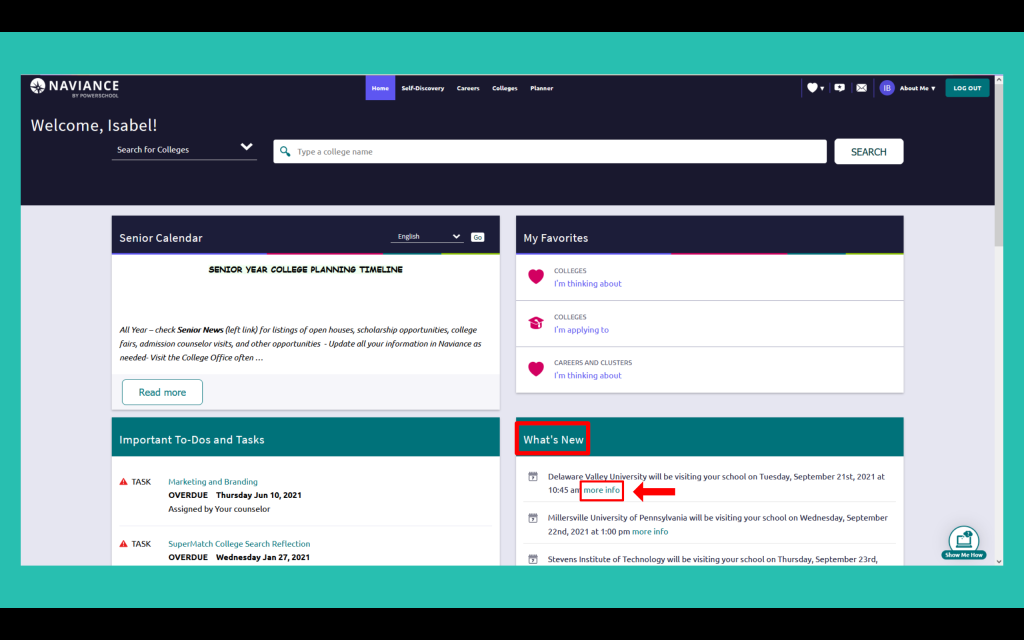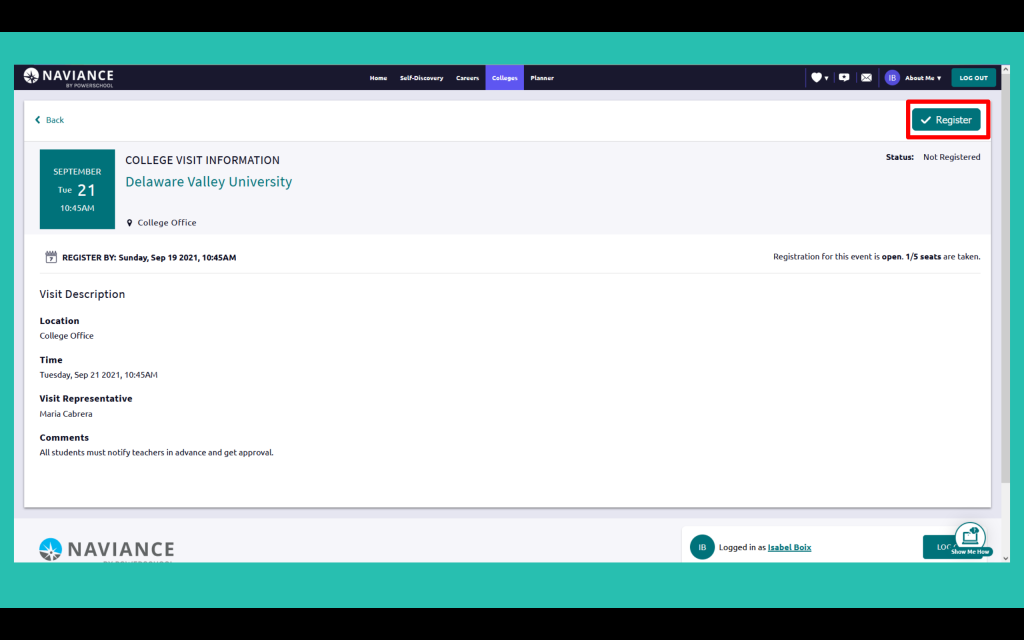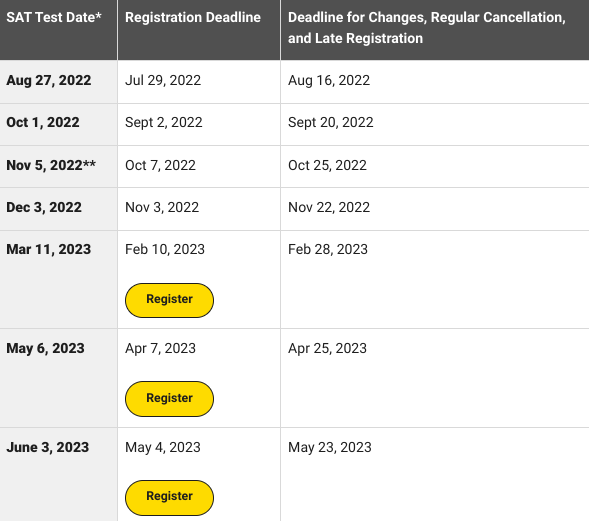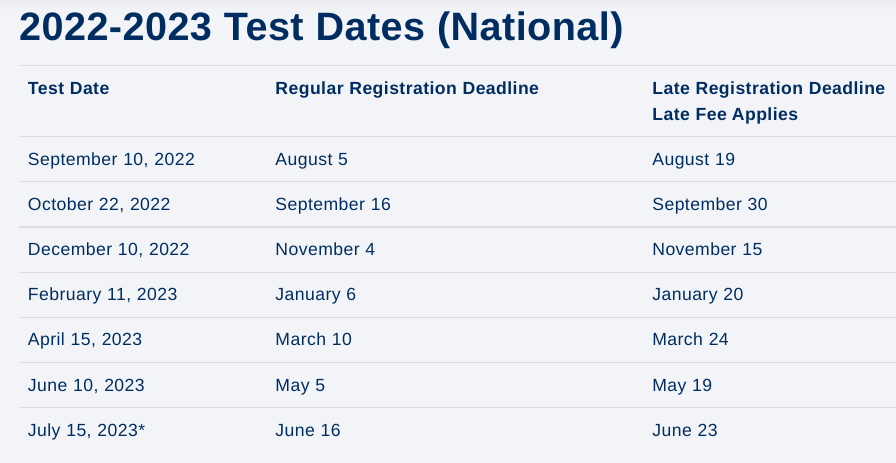Junior year is the year to begin thinking about your college checklist. Who will write your letter of recommendation? (link to possible rec. template for teacher) Any dream colleges? If so, what are their requirements? Junior-year students begin thinking about SAT’s and ACT’s. Are they a requirement for your top colleges? Some students find themselves hating tests and choose to only apply to test-optional schools. That is a choice you’ll have to make based on what you’re comfortable with.
Your junior year is the perfect time to try all kinds of new opportunities. Find what you are interested in. Some students find internships or after-school programs that not only help them build their extracurricular list but also help them understand what possible majors they’ll look into in college.
Take this time to build strong relationships with your teachers. Ask yourself what your favorite subject is, and make sure that the teacher has good things to say about you. They could be the difference between an acceptance or a rejection.
Take this year to visit colleges. Help your senior self out by having a good understanding of what a college campus looks like. Some students find themselves falling in love with a college because of their school environment and campus. Explore that during your junior year.
Finally, ask questions. Talk to the students that are going (or went) through the process. Any advice they can give you? Curiosity can be one of the greatest tools in this process.
What are Liberal Arts Colleges? Research Institutions? Difference between Private and Public Institutions?
Difference between College and University.
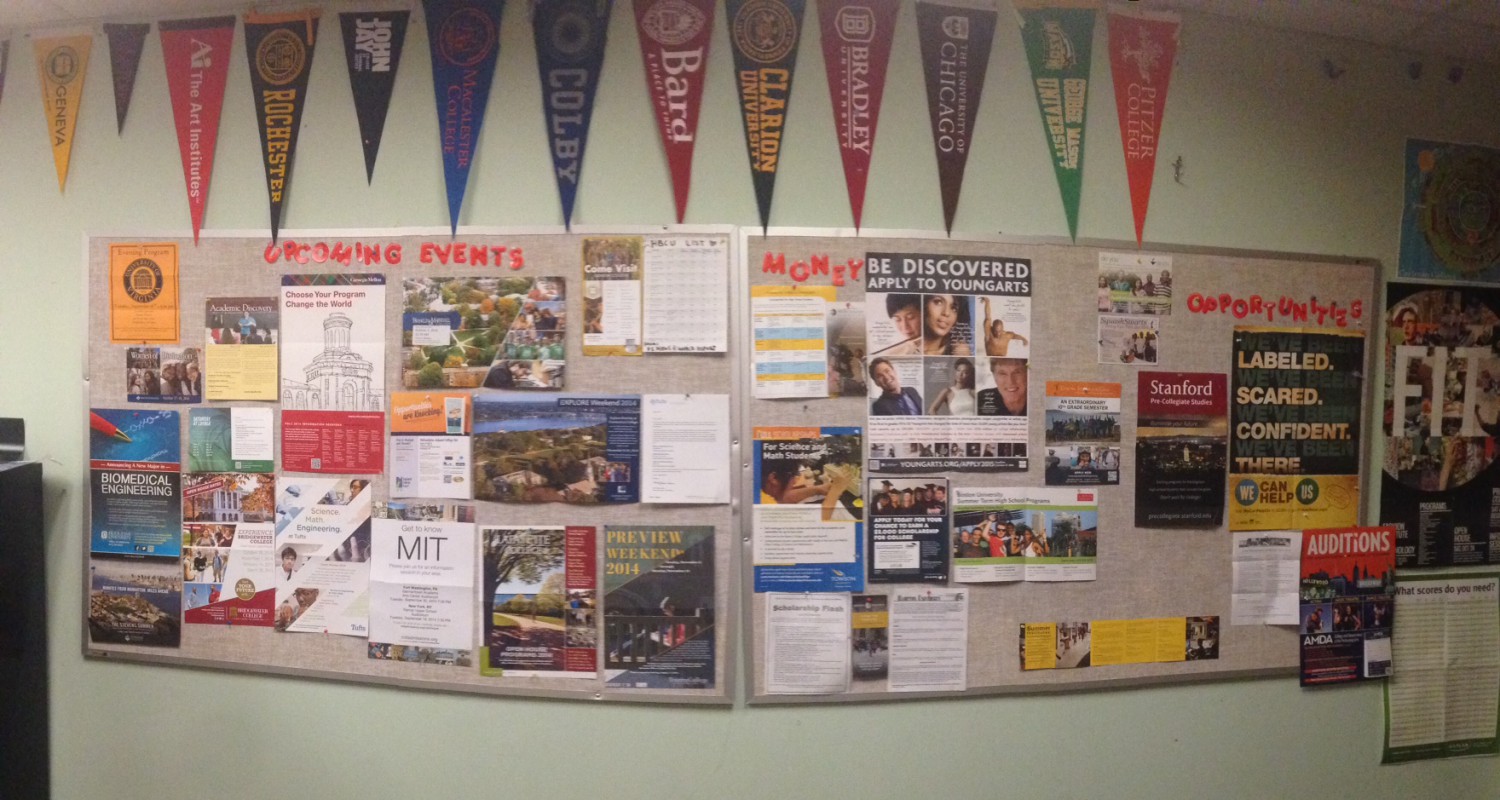
 Get ready to meet college and trade school reps in person and virtually. Follow THESE STEPS to see the calendar in Naviance and register to attend.
Get ready to meet college and trade school reps in person and virtually. Follow THESE STEPS to see the calendar in Naviance and register to attend.